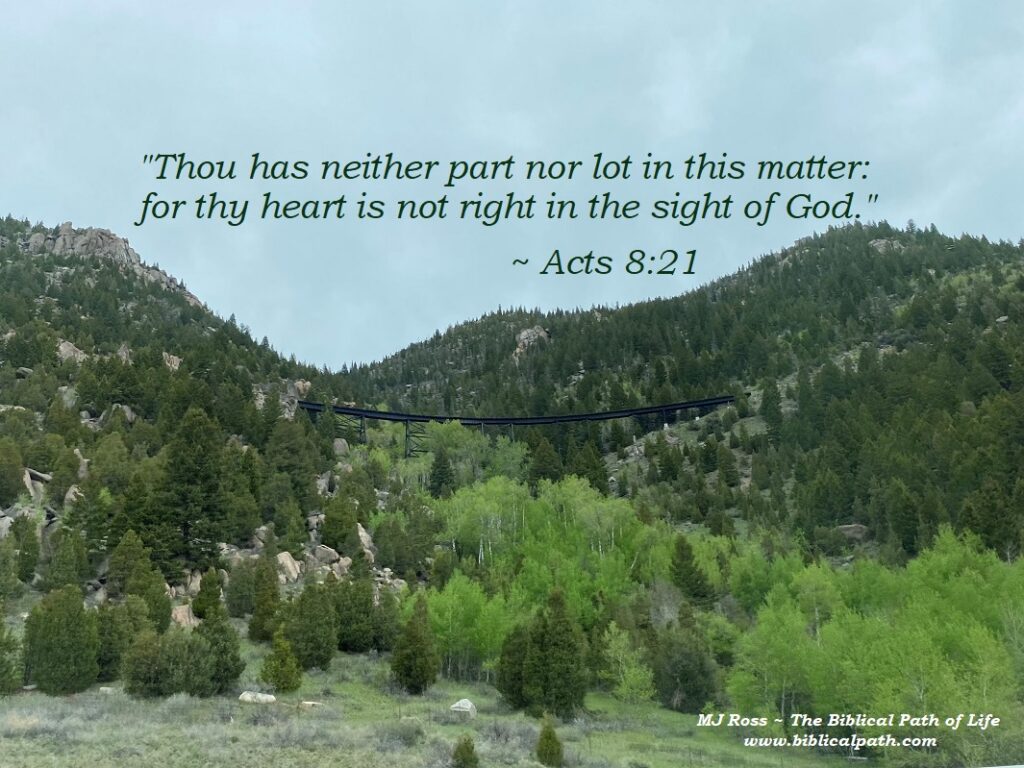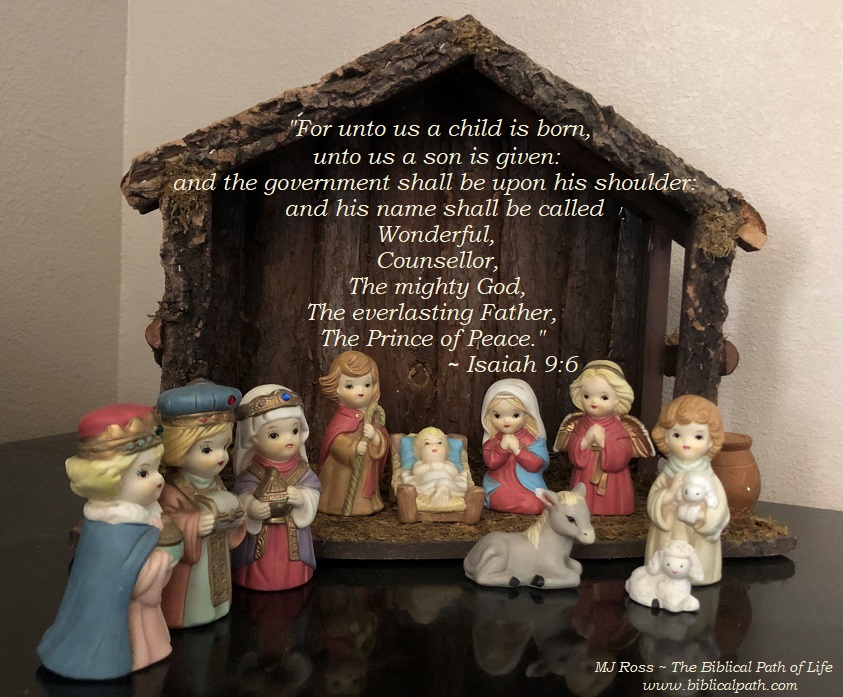
“Those things, which ye have both learned, and received, and heard, and seen in me, do: and the God of peace shall be with you.”
Philippians 4:9
Remember in the New Testament when Paul was preaching Jesus to those in Ephesus. For two years they won many to Jesus, and many miracles were done (many people were healed and evil spirits were cast out). However, along with that came some who were not Christians yet tried to do the works Paul had done (cast out evil spirits). When they tried, they were worse off than before because the evil spirits they had tried to cast out, instead came upon them (Acts 19:13–16). The new Christians in Ephesus recognized those who were not truly Christians and the results of falsely declaring so. One who trusts in Christ (becomes a Christian) has a nature change – becoming a new creature. “Therefore if any man be in Christ, he is a new creature: old things are passed away; behold, all things are become new” (2 Corinthians 5:17).
Read what happened next: “17. And this was known to all the Jews and Greeks also dwelling at Ephesus; and fear fell on them all, and the name of the Lord Jesus was magnified. 18. And many that believed came, and confessed, and shewed their deeds. 19. Many of them also which used curious arts brought their books together, and burned them before all men: and they counted the price of them, and found it fifty thousand pieces of silver. 20. So mightily grew the word of God and prevailed” (Acts 19:17–20). Because the people recognized the difference between true salvation and a false practice, notice something very important. These people did not add Jesus to their other things (practices); they took their old things (curious arts means “black arts; or magic”) and burned them before all — it did not matter the financial loss. They destroyed them so that those things would not be a part of their lives anymore.
Understanding that there is a choice to be made by each individual (believe the Gospel message or reject it), it is important for that person who believes to have a nature change. Why? “21. For it had been better for them not to have known the way of righteousness, than, after they have known it, to turn from the holy commandment delivered unto them. 22. But it is happened unto them according to the true proverb, The dog is turned to his own vomit again; and the sow that was washed to her wallowing in the mire” (2 Peter 2:21–22). When one chooses to disregard God’s Word, refusing the gift of Salvation by faith in Jesus, thereby ignoring the warnings of the consequences for sin (eternal death, see Romans 6:23), it reveals the nature of the heart. Just as the dog had the same nature of a dog and the pig the same nature of a pig, it reveals there was no nature change. It is the choice of any who hear the truth of the Gospel message to decide for themselves. “9. That if thou shalt confess with thy mouth the Lord Jesus, and shalt believe in thine heart that God hath raised him from the dead, thou shalt be saved. 10. For with the heart man believeth unto righteousness; and with the mouth confession is made unto salvation” (Romans 10:9-10). Believe in Jesus for salvation, thereby having a change of heart. Or, do not believe, remaining in that old nature. However, read the following warning: “Take heed, brethren, lest there be in any of you an evil heart of unbelief, in departing from the living God” (Hebrews 3:12).
Christians are taught in God’s Word to put the old things of our former life to death (see Colossians 3:5). Instead, we are to think upon good and right things (see Philippians 4:8). These things are taught in the Bible. “Those things, which ye have both learned, and received, and heard, and seen in me, do: and the God of peace shall be with you” (Philippians 4:9). Understand that while thinking on these things is very good, there is another step that must be taken. Christians must do these things. We find an important warning to all Christians who know what we are to do: “Therefore to him that knoweth to do good, and doeth it not, to him it is sin” (James 4:17).
Many events in the Old Testament are instances for us to recognize when one makes a right choice, and when one makes a bad choice. King Jehu did many great works (including the removing of Baal worship, see 2 Kings 9-10) in Israel, the Northern Kingdom. However, we also saw his great failure. “But Jehu took no heed to walk in the law of the LORD God of Israel with all his heart: for he departed not from the sins of Jeroboam, which made Israel to sin” (2 Kings 10:31). His heart did not change which was revealed in his not walking in the “law of the LORD God of Israel”. For that, Jehu was not considered a good king. Just think what kind of a king Jehu would have been if he had sought God’s commands and changed his heart, and then led the nation to do the same.
Have you chosen to remain in that old nature, departing not from your sin?
Or
Have you had a change of heart, believing and confessing Jesus, and then doing what the Bible teaches?








